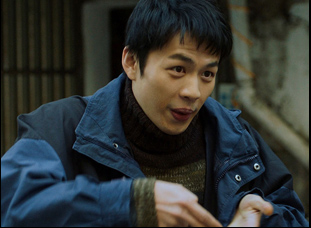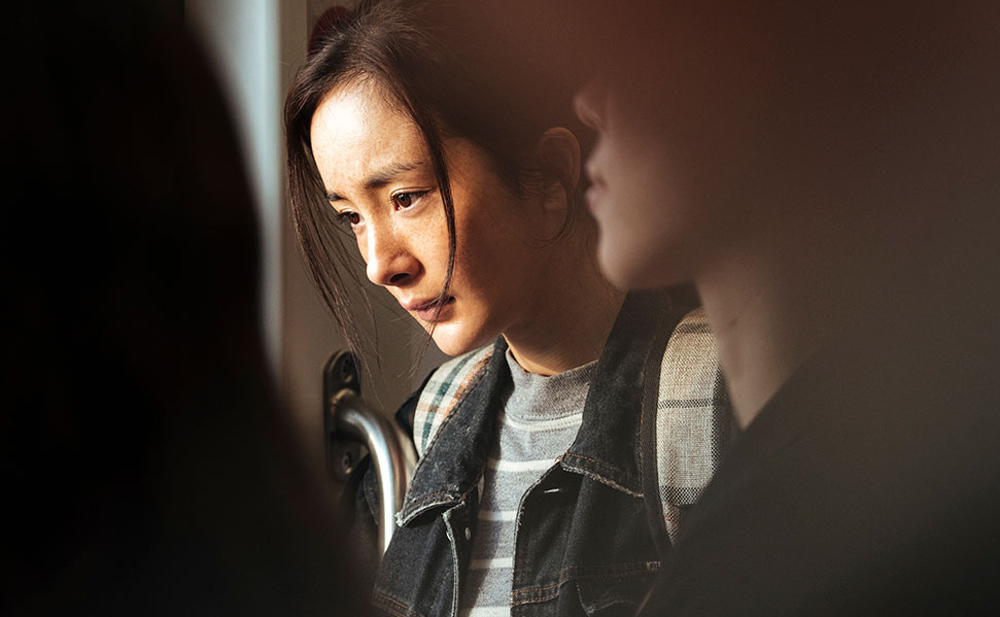Nearly a decade ago, a friend of the writer/director Liu Jie was given a devastating diagnosis for his newborn child, leaving him with just three days to decide the baby’s fate. The situation was fraught with tension, and naturally no time to think of a film, yet as Liu looked into the situation of what would happen to the child, who would be severely deformed and face chronic health issues, should it have lived, he found reason to shed light on the infrastructure currently in place to raise children with special needs, often placed into foster care by parents who cannot afford such medical costs or the time necessary to give proper care. In his research, Liu found an impoverished village in which a cottage industry sprung up around taking these children in, receiving a monthly stipend for their support, and it led the filmmaker, who’s long tackled social issues, to develop the story of “Baby,” centered on a young woman who survived a perilous birth faces new concern as she ages out of the system at 18.
Chinese superstar Yang Mi is virtually unrecognizable as Meng, whose many visible scars seem to run far deeper than her skin and while her foster mother would be content to have her keep living with her, that arrangement is appearing unsustainable as the old woman needs more help than she’s able to provide and she herself needs some kind of guardian, as Social Services Director Wang (Wang Yanjun), who has a soft spot for her, gently reminds her. When Director Wang attempts to set Meng on the path towards a new life with a paying job as a janitor position at a local hospital, it backfires in ways both expected and not as the seemingly indomitable Meng is confronted by the physical challenges posed by demanding labor that she is simply unequipped for, but also the emotional toll of being around families in equally precarious situations as the one she was once part of herself, specifically when she’s asked to escort the father (Jingfei Guo) of a child born with a congenital disorder around the hospital as he weighs getting treatment for his newborn daughter or letting her pass on.
It’s a decision that Meng comes to make for him, launching “Baby” into a ticking clock thriller that reverberates throughout Chinese society as Liu bears witness to all the ways in which children can fall through the cracks as some pursue profit, others follow procedures that don’t take human considerations into account and there are those who simply have different attitudes towards the choice of raising severely disabled child or letting them go when they’re young. While it was considered a risk for Yang and Guo, both wildly popular in China, to take roles in what’s considered to be an arthouse film, “Baby” proves to be both socially conscientious and a crackling potboiler and following the film’s premiere at the Toronto Film Festival, en route to San Sebastian where it plays this weekend, Liu spoke, with the help of a translator, about immersing his actors in the reality he’s trying to portray, coming up with a clever way to preserving authenticity when it came to local dialects and how it’s unlikely he’ll bow to commercial concerns any time soon.
Most projects I’ve done in the past are usually things that have had some kind of social content that’s meaningful to me, like I caught this little piece of news and I find it surprising and I realize, “Oh, this is something I cannot get off my mind.” And some issues I explore a little bit on my own and then I realize [in some cases], “Okay, there’s a solution,” and I feel like I can get a question over my mind, so I’m probably not going to do a film about it, but the ones that I feel there are questions left unanswered, I’m more than likely to pursue as a film.
With complex social issues and concerns, you want to portray it as a story, so through all the research and a lot of interviews, your idea gets formed clearer and clearer and perhaps then go this is the one person’s angle that I want to come from or it could be a mixture of different people’s angles, but as is a director’s habit, you [start to form] some sort of a narrative.
What made Yang Mi right for the part?
One of the reasons she was suited for the character is that she has to be someone who is small in stature, she couldn’t be a character of a stronger or a bigger physique, so as long as that criteria is met, there are no bad actors for a part, but rather bad directors who cannot help them become that character.
She’s a very famous actress and at the premiere, you said you could see her by the end of the shoot being unrecognizable to passerbys on the street. What was the process to arrive at that place?
A big part of it is treat her as the person who you want her to be acting like, so I would not treat her as if she’s a movie star, and as a director, sometimes it could be a little bit of a torment to be working with me. [laughs] So for example, the male character played by Jingfei Guo, I kept telling him, “Obviously, you’re suffering. You’re not happy. You’re not in a good state of mind because you have an infant with such a problem, so if you want to catch the right mood for yourself or for the character, try not to sleep for three days. Then you probably get into the right state.”
So with Yang Mi, that of course is not something that can be done right away, but I knew if I had a lot of extras and we’d seal off the whole street and we treat her like a big star, she will be acting as if she’s a star. But when she came [to set], no one treated her any differently and she just stood by us while we were doing other things. That happened gradually because when we first took her out on the street, of course people recognized her and they would follow her. But little by little, [everyone] would pay less attention to her, also because of the makeup and the dresses, but people would not think, “Oh, that person who has no security guard, no one’s talking to her, no one’s around her in any special, was the big movie star.

Part of the realism [in the film] was to have her have other friends of similar experience [to her] because that village took on a lot of foster children and a lot of the foster children were abandoned because they had disabilities, so it is part of the story that she would have friends who would have physical challenges. That was always part of the creative idea. But originally, we were hoping to have a disabled person coming in to play that [role] and we started it off that way. There was a person who was walking with two crutches and we were hoping to have him act as her friend to show that people with different kinds of physical disabilities integrate into mainstream and they do adapt and there’s different kinds of adaptation, so it was important to have another character that has reasonable screen time that has disabilities. But I realized that because that person’s not an actor, it was difficult to direct him in a way that would actually perform well onscreen, and the actor we ended up having is from Taiwan and the Taiwanese speak differently than the people in Mainland and because this story happens in a little city in Nanjing, they have a local dialect and the Taiwanese actor, it’s impossible for him to adapt that accent. So when the idea of not having him be able to speak came along and it actually worked out very well.
One of the more intriguing elements in the film to me was how all the human issues are quantified in financial terms — everyone is eerily aware of how much certain medical procedures cost or what they’ll receive for certain social services. Was that something you were seeing firsthand in your research?
What I personally find is that there’s a difference between how Chinese society is organized and how Western society is organized. In Chinese society, it [involves] much more people’s feeling and reactions. It’s a personal interaction type of a world. In China, it’s not like things can be resolved by money only. And this [Chinese] term, which literally translates to “people’s feelings” is actually a very intricate part of how people interact and how things get done in China, so if you want to send your child to a [certain] school, for example, it’s important to know someone at that school and sometimes that itself is enough and that will help to get this done. Of course, money can be a component of that, if you don’t know anyone at the school, or on top of that, but money itself is usually not enough. It’s usually more important to have this connection and that is more of how the society works things out.
I understand this has been in the works for nine years. What’s it like to get off your shoulders?
Movies with such a long production arc have a lot of pressure built into them. For example, I chose to make a movie that is not an entertainment per se, so my immediate reaction is that now it is released, can I get the money back for people who invested in it? Of course I’m happy that I’ve done my creative work, but this is a difficult question because as a director you have your own focus. You want to focus on particular issues and a particular type of film, but in China, generally speaking, people live a very fast-paced life and they have a lot of pressure, so when they go to a movie theater, they just want to go to relax. They want to be entertained. But in my mind, of course, to be able to express what I want to express is more important than making money.
“Baby” will next play at the San Sebastian Film Festival on September 29th.





